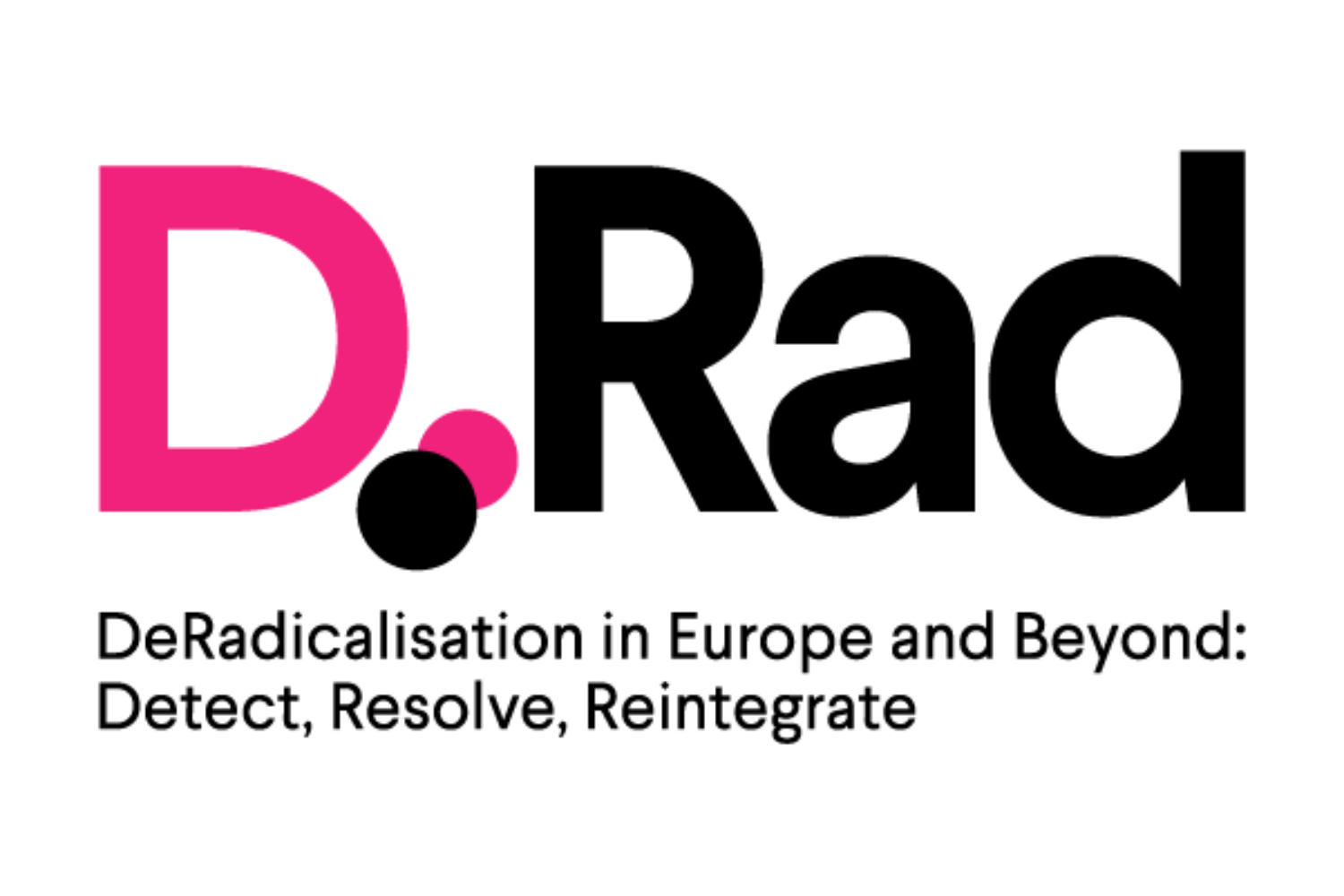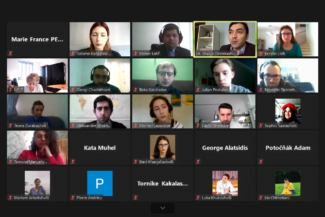Recently, the Georgian Institute of Politics (GIP) became a part of the new Horizon2020 research project D.RAD – De-Radicalisation in Europe and Beyond: Detect, Resolve, Re-integrate. The project, which will last for three years, is financed by the EU’s research framework Horizon2020 and is implemented by international research consortium consisting of 18 EU and non-EU partners:
- The Glasgow Caledonian University (United Kingdom)
- Freie Universitaet Berlin (Germany)
- Centar Za Komparativne Studje Konflikta Cksk (Serbia)
- Accademia Europea Di Bolzano (Italy)
- Ben-Gurion University of the Negev (Israel)
- Universita Degli Studi Di Firenze (Italy)
- Brunel University London (United Kingdom)
- Helsingin Yliopisto (Finland)
- Uniwersytet Humanistycznoprzyrodniczy Im. Jana Dlugosza W Czestochowie (Poland)
- Kosovar Centre for Security Studies (Kosovo)
- Georgian Institute of Politics (Georgia)
- The American University of Paris (France)
- Oesterreichische Akademie Der Wissenschaften (Austria)
- Yarmouk University (Jordan)
- Hammurabi Human Rights Organization (Iraq)
- Zavod Za Avtorsko Produkcijo Izobrazevanje Inovativnost In Sodelovanje (Slovenia)
- Istanbul Bilgi Universitesi (Turkey)
- Udruzenje Proni Centar Za Omladinski Razvoj (Bosnia and Herzegovina)
D.Rad grounds radicalisation in perceptions of injustice which lead to grievance, alienation and polarisation. Based on a rigorous, cross-national survey of the drivers (injustice, grievance, alienation, polarisation) that can generate violent extremism, it uses innovative machine learning, discourse analysis and social psychology approaches to test projects, tools and dissemination strategies, emphasising the experiences of young people and socially excluded communities, and offering policy and practical recommendations. It will meet challenges posed for radicalization research by developing online and offline interventions to promote agency, resolution and resilience.
D.Rad will benefit from an exceptional breadth of backgrounds. The project spans national contexts including the UK, France, Italy, Germany, Poland, Hungary, Finland, Slovenia, Bosnia, Serbia, Kosovo, Israel, Iraq, Jordan, Turkey, Georgia, Austria, and several minority nationalisms. It bridges academic disciplines ranging from political science and cultural studies to social psychology and artificial intelligence.
This will involve three core objectives, supplemented by secondary aims:
- Detect Trends: Rad aims to identify the actors, networks, and wider social contexts driving radicalisation, especially in the emerging context of everyday polarisation over mundane issue in micro-spatial environments, in order to base interventions in evidence grounded in contemporary data and methodologies.
- Resolve Drivers: Rad aims to understand the online and offline drivers that turn grievance, alienation and polarisation into radicalisation, so that policies can more effectively target underlying problems of social exclusion.
- Re-integration and Inclusion: Rad aims to understand how individuals affected by grievance, alienation and polarisation can be re-integrated into the established polity or social groups, without compromising personal or collective liberties.
Together with the American University of Paris the GIP is leading the Work Package 11 which is responsible for effective dissemination and exploitation of project outputs as well as production of a working paper series, called “Global Radicalisation: Trends, Drivers, and Solutions.”
Follow us on Twitter >>
@DRadProject





